To get a contractor license in South Dakota, first understand that each city or county, like Sioux Falls, Rapid City, or Aberdeen, has unique rules. You'll need to gather proof of experience or education and often pass an exam, like the Construction Supervisor Examination in Sioux Falls. Don't forget to obtain liability insurance and a surety bond; $300,000 coverage and a $20,000 bond are usually required. Also, register for the Contractors Excise Tax License to handle the 2% gross receipts tax. Keeping your license and education current is essential. Now let's explore some excellent construction management firms.
Understanding Local Licensing Requirements
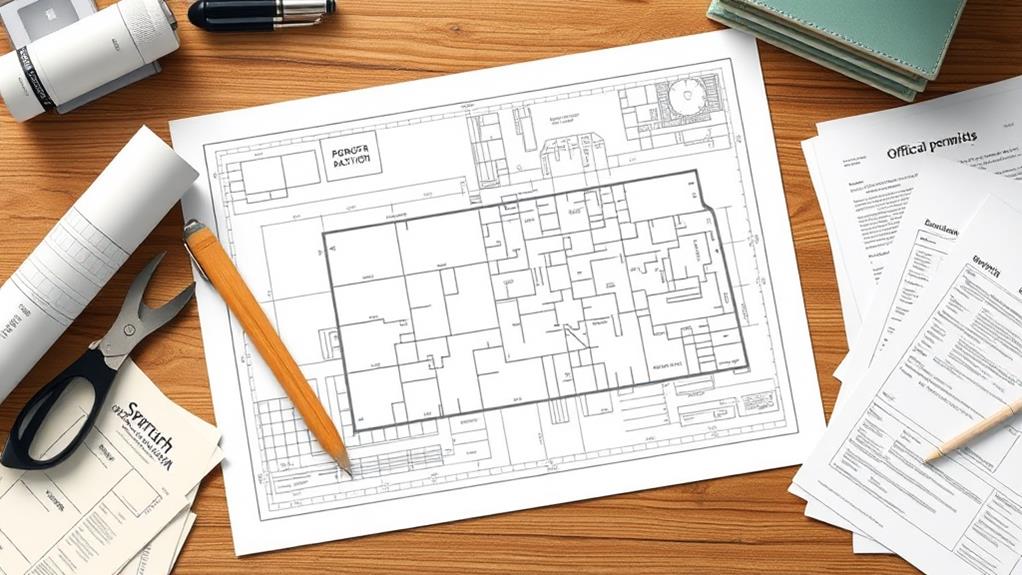
When maneuvering the maze of local licensing requirements for contractors in South Dakota, it's vital to understand that there's no universal statewide license. Each city and county has its own rules, so understanding local regulations is imperative.
In Sioux Falls, for instance, you'll need to pass the Construction Supervisor Examination to obtain a Residential Building Contractor license. This guarantees you're prepared for building inspections and highlights the importance of meeting specific local licensing requirements.
In Rapid City, all South Dakota contractors must be aware that licenses are issued through the Building Inspection Division. Here, continuing education is required, alongside proof of insurance, to maintain compliance. These insurance requirements safeguard both you and your clients, preventing issues with unlicensed contractors.
Aberdeen's approach emphasizes the need to understand local regulations thoroughly. Various contractor licenses can be obtained with applications available at City Hall, making it clear that the application process can differ greatly between locations.
Brookings, on the other hand, focuses on plumbing and residential contractors, guaranteeing that their licensing process is streamlined yet compliant with local standards. By understanding these local nuances, you can efficiently navigate South Dakota's contractor licensing landscape.
Preparing Your Documentation
To successfully apply for a contractor license in South Dakota, you need to gather and prepare essential documentation. Start by collecting proof of experience or education in construction, as this may be required depending on the type of license you're seeking.
If you're applying for specialty licenses, like those for electricians or plumbers, prepare a notarized application. These licenses often require specific training and experience, along with a surety bond, to guarantee you meet professional standards. It's also beneficial to familiarize yourself with services offered by established contractors to understand industry standards.
Next, gather proof of insurance coverage. Liability insurance or a compliance bond is often necessary, as many municipalities require them for the licensing process.
You'll also need your South Dakota Contractors Excise Tax License. This tax-related document is mandatory for all contractors who engage in construction contracts within the state.
Additionally, check for any local permits or certificates required by the specific city or county where you plan to operate. These requirements can vary considerably, so it's important to verify you're compliant with local regulations.
Completing the Application Process
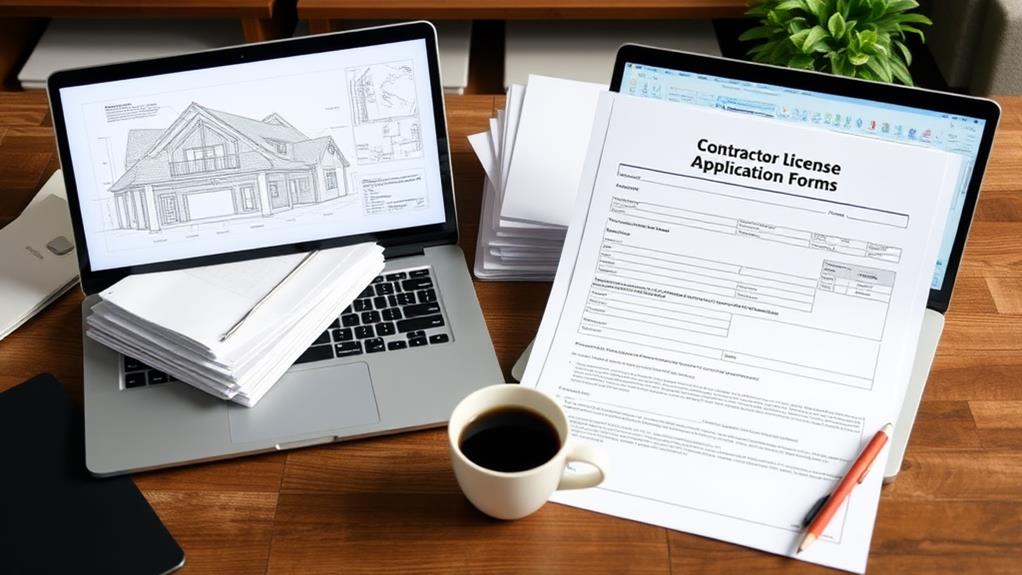
Commence the final steps of obtaining your contractor license in South Dakota by submitting a notarized application along with the necessary fees. The fee amount can vary depending on the type of license you're applying for; for example, a plumbing contractor license might cost around $375.
As you move through the application process, remember to include proof of experience or education in construction. This is essential as it demonstrates your capability and readiness to provide construction services.
You might also need to pass a licensing exam, which tests your knowledge of trade practices and local regulations. Don't forget to register for a Contractors Excise Tax License with the South Dakota Department of Revenue, as a 2% tax applies to gross receipts from your construction services.
Additionally, make sure you comply with both state and local regulations, as each area might've its own unique requirements.
Be prepared to provide any additional documentation, such as proof of insurance coverage and a surety bond, which may be required by specific municipalities.
Meeting Insurance and Bonding Needs
Maneuvering the requirements for insurance and bonding is an essential step in securing your contractor license in South Dakota. You need to guarantee you have the right insurance coverage and compliance bond to protect your business and clients.
Liability insurance, with a minimum coverage of $300,000, is mandatory for contractors in South Dakota. This insurance safeguards against claims related to your construction work. Additionally, you'll need a compliance bond, usually at least $20,000, which guarantees your accountability and financial protection for clients.
Local licensing jurisdictions, like Sioux Falls and Rapid City, may have specific insurance and bonding requirements. It's vital to verify these local regulations before submitting your contractor application. Proof of insurance coverage and bonding is often required to obtain your contractor license, confirming you meet all criteria.
Failing to meet these bonding requirements can lead to penalties, such as fines or even denial of your contractor license application.
Renewing and Maintaining Compliance
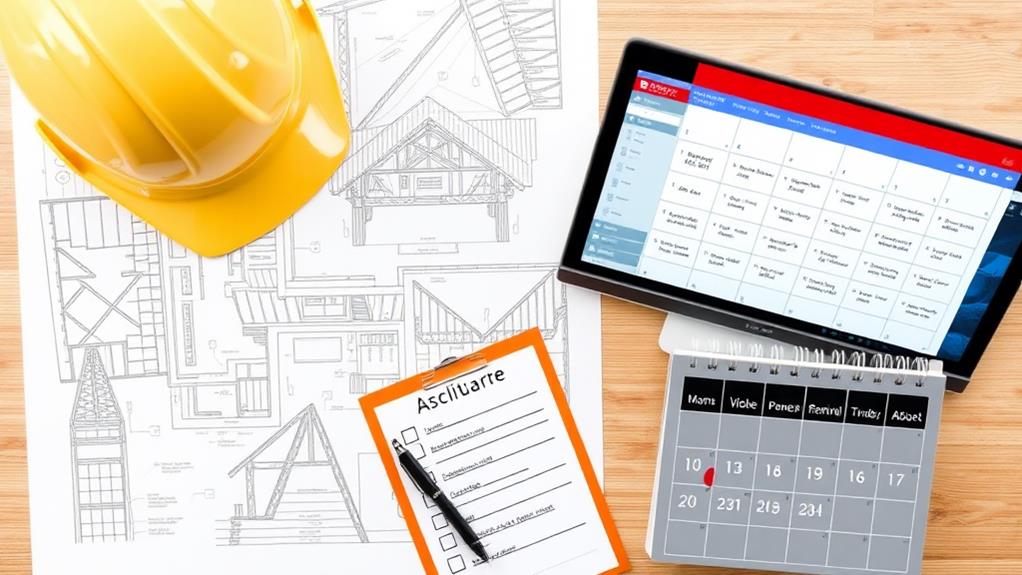
After securing the necessary insurance and bonding, you must focus on renewing and maintaining compliance with South Dakota's contractor licensing requirements. Regular renewal of your contractor license is essential, with timelines and fees differing based on your specific license type. Staying compliant guarantees that you can continue offering construction services without interruptions.
Here's what you need to keep in mind:
- Stay Updated: Engage in continuing education to keep up with industry standards and local regulations, which might be required for some trades.
- Tax Compliance: Maintain your Contractors Excise Tax License to guarantee compliance with the 2.00% tax on gross receipts from construction services.
- Proof of Insurance: For renewal, you'll often need to provide proof of insurance coverage, including the required liability insurance and compliance bonds as dictated by local jurisdictions.
- Avoid Penalties: Failing to renew your license or violating local regulations can lead to penalties like fines or legal action, impacting your business.
- Timely Renewal: Mark your calendar for renewal deadlines to avoid lapses in your contractor license and guarantee seamless operations.
Keeping these points in mind will help you maintain your standing and avoid complications, allowing you to focus on your work with confidence.
Conclusion
By understanding local licensing requirements, preparing your documentation, and completing the application process, you're on the path to becoming a licensed contractor in South Dakota. Meeting insurance and bonding needs is essential, as is renewing and maintaining compliance to keep your license active. Follow these steps carefully, stay organized, and you'll succeed. With dedication and attention to detail, you'll build a solid foundation for your contracting career, ready to tackle projects with confidence and professionalism.
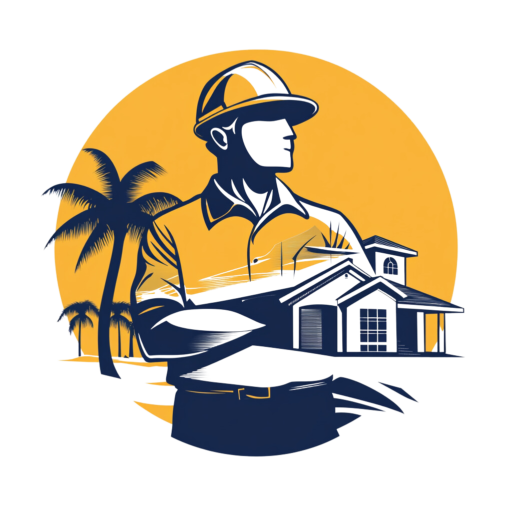
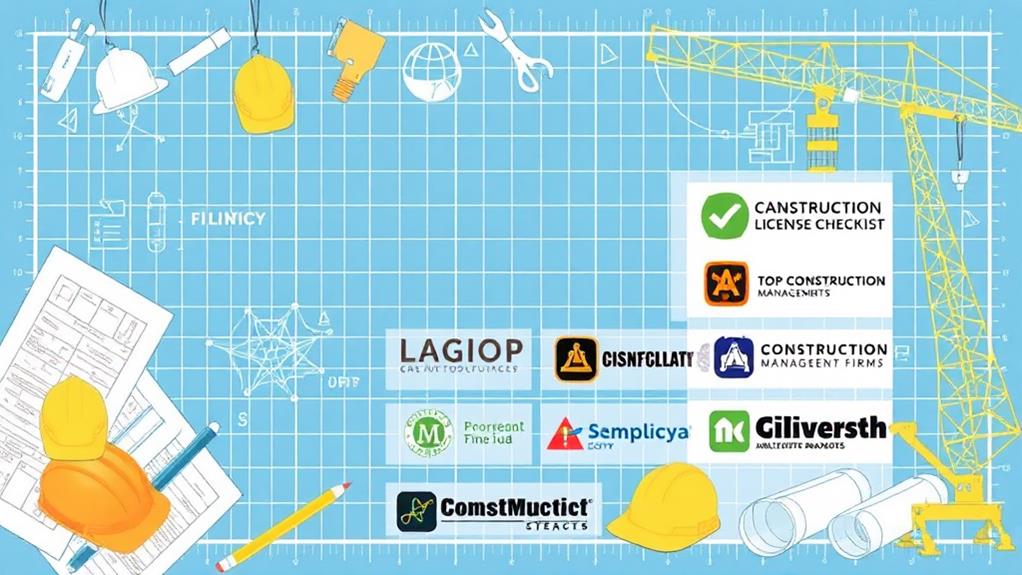
Leave a Reply